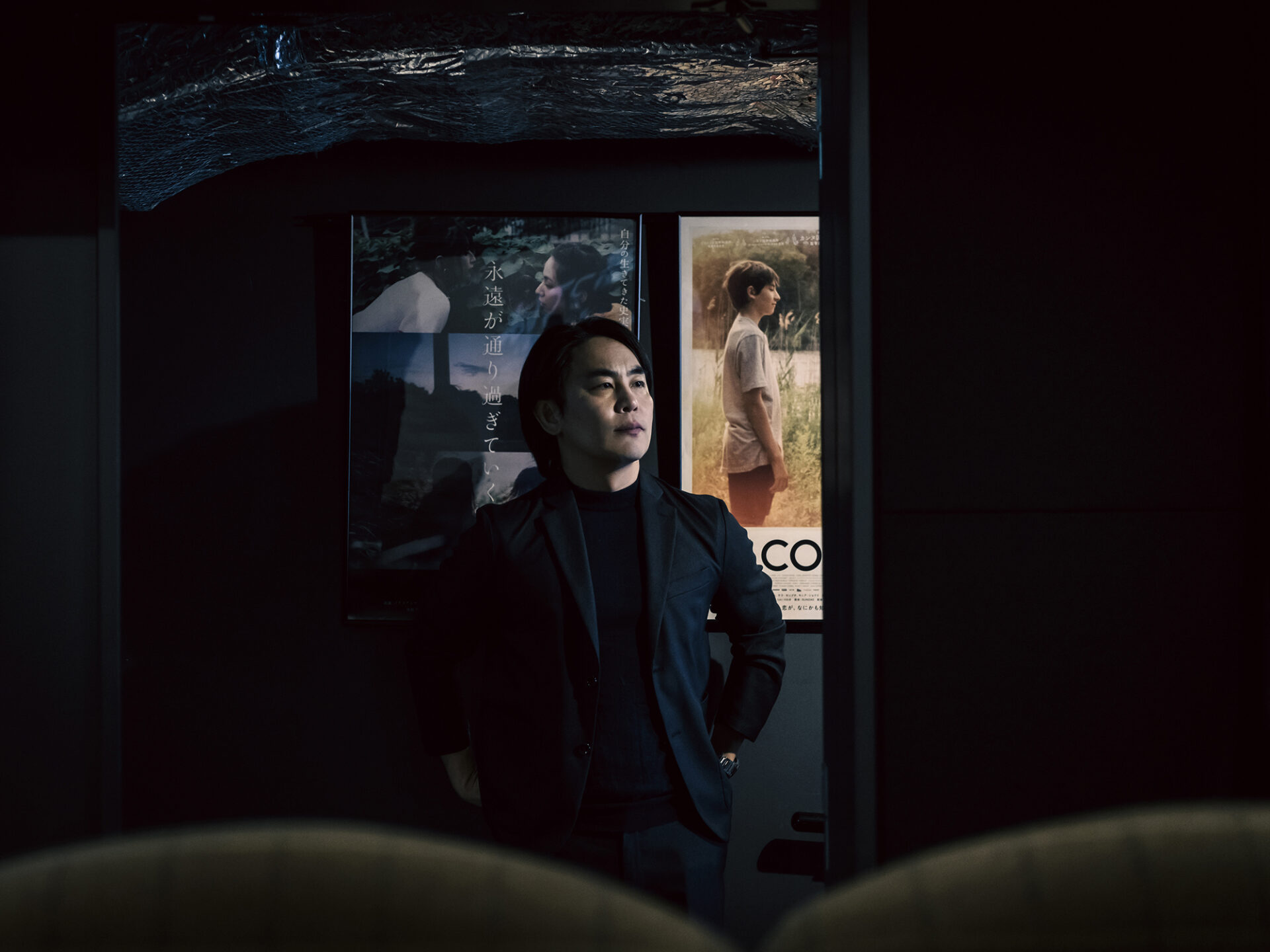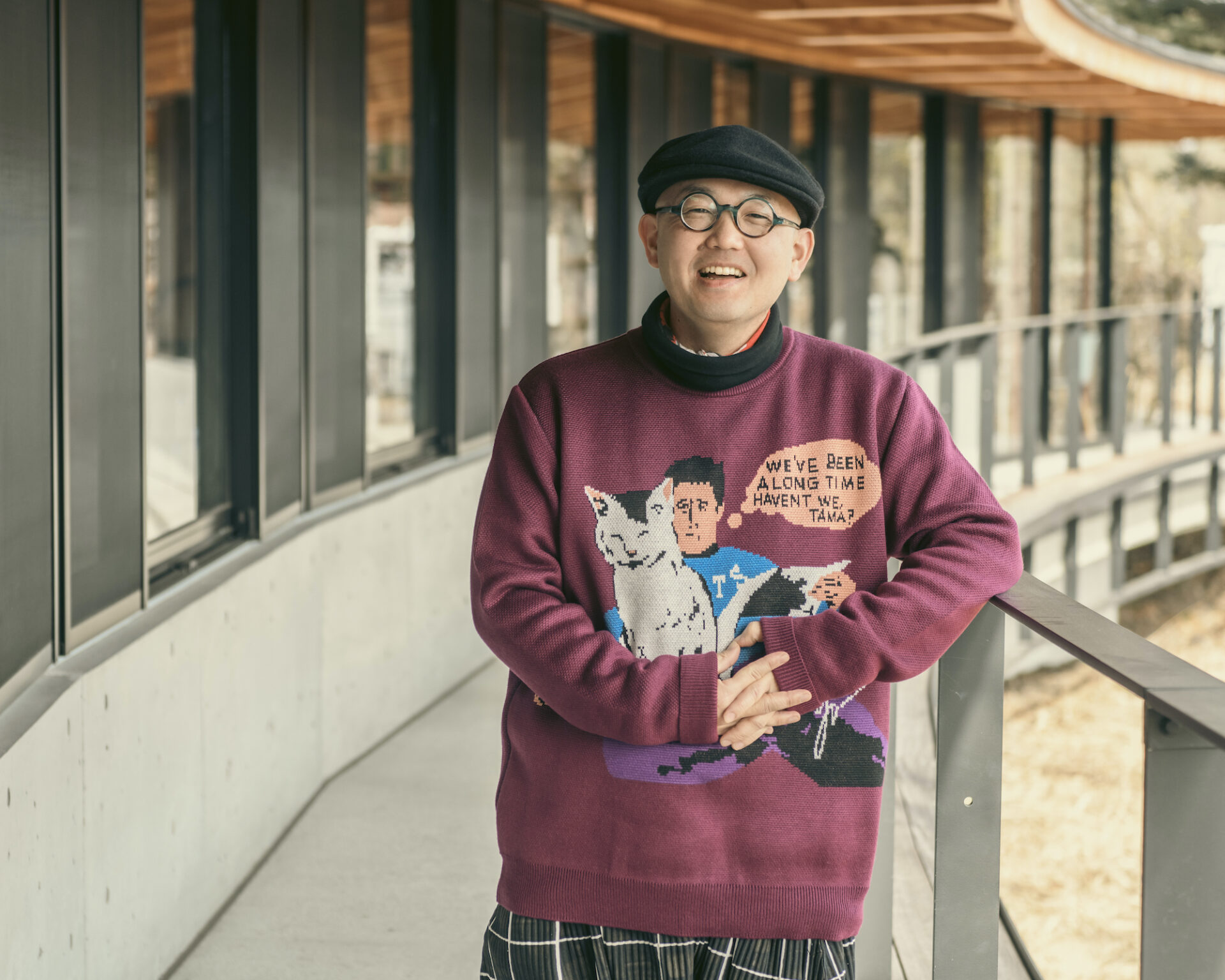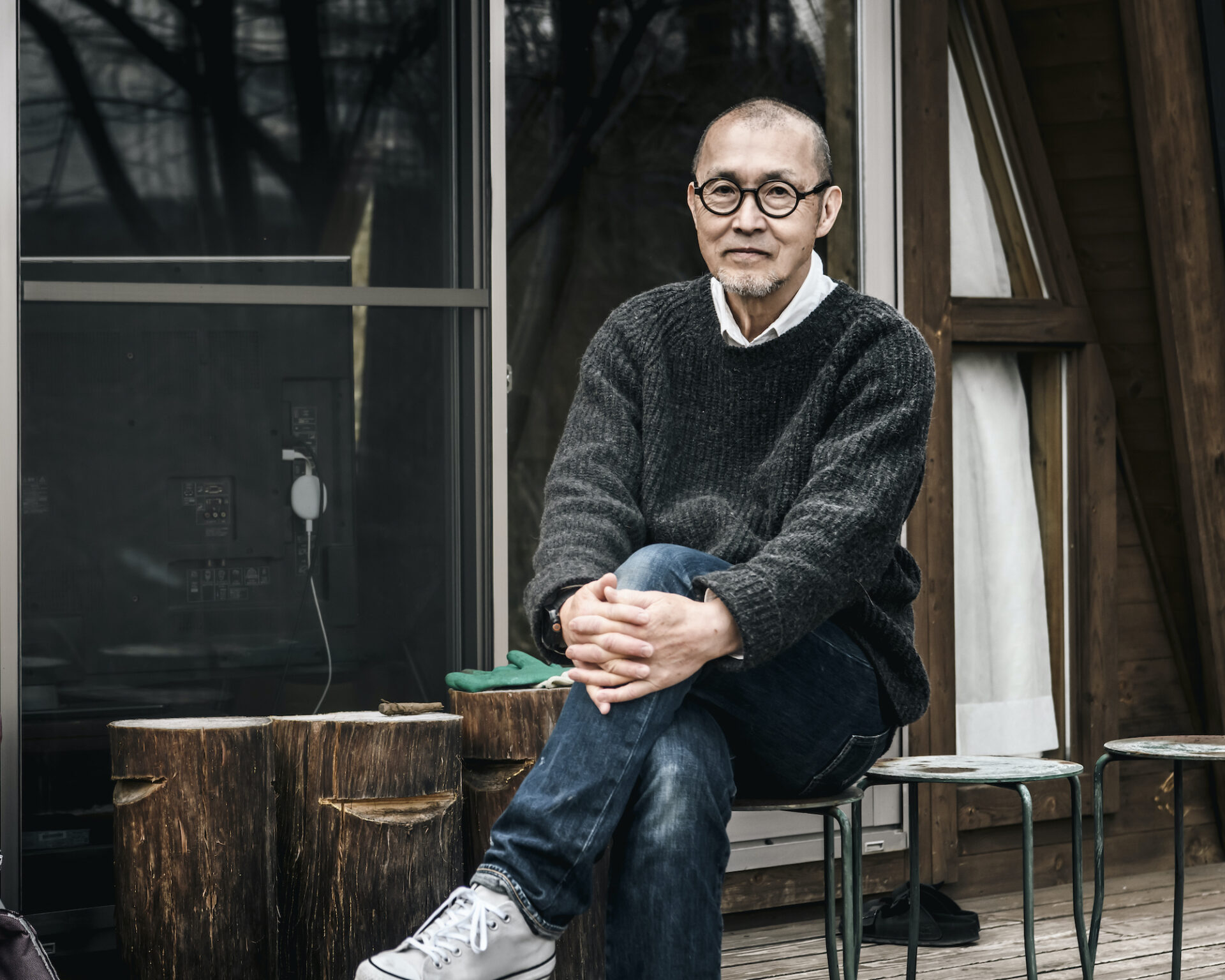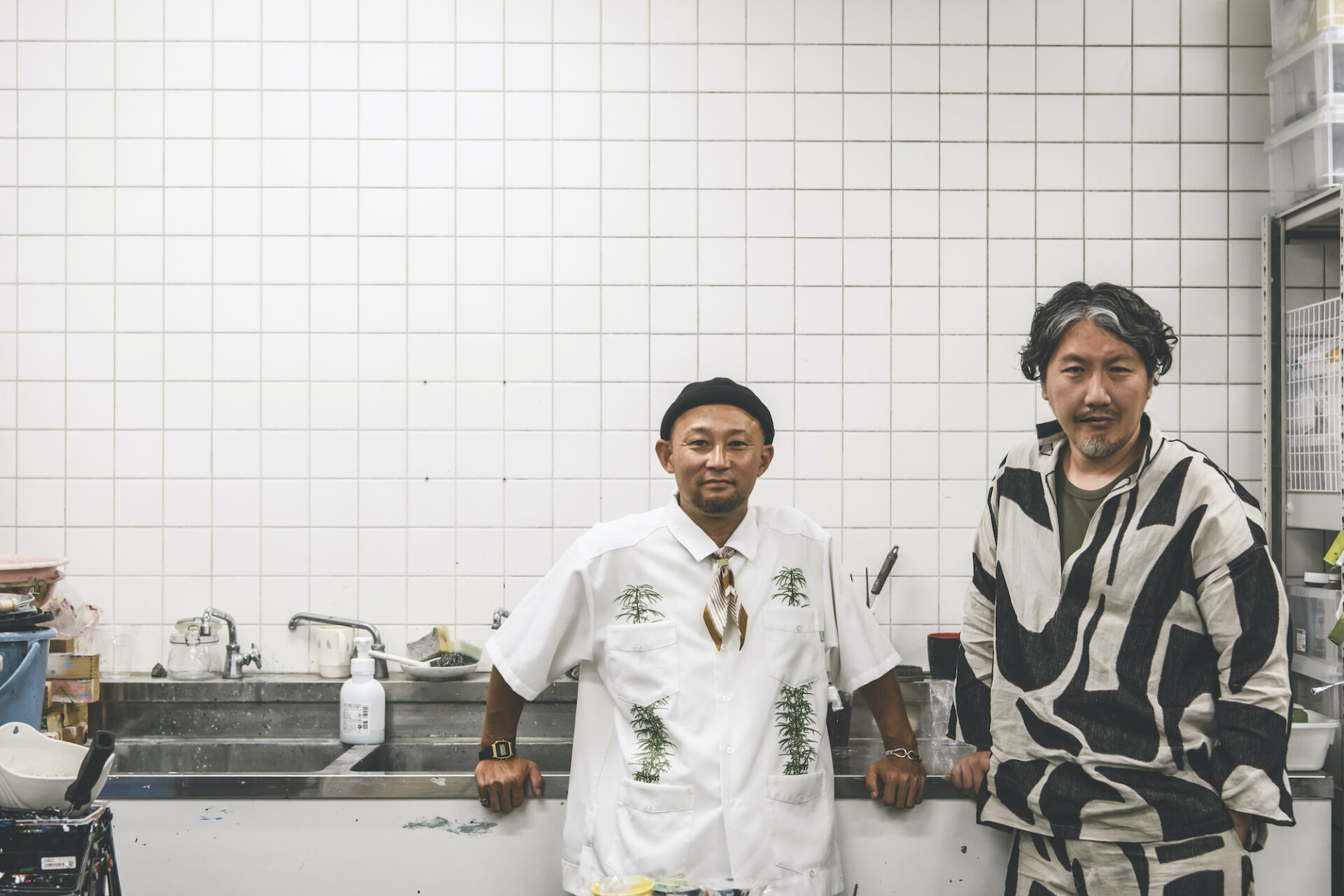
2025-10-02
Vol.21
Facility Director at PICFA (Disability Welfare Service Facility)
Hiroyuki Harada(part 2)
-
Never Judge People by Whether They Are Useful or Not
-
Learning by Growing Plants
-
A Visitor from Kenya
-
Opening a New Chapter in Japan's Welfare History
Located within Kiyama Kage Hospital in Kiyama Town, Saga, there is a unique facility that attracts visitors from around the world — PICFA, a disability welfare service facility. Here, people with intellectual and mental disabilities pursue creative expression — primarily painting — using brushes, colored pencils, tablets, and more. Overseeing them with a gentle gaze is PICFA’s facility director, Hiroyuki Harada, our guest today.
True to its name — a fusion of PICture and welFAre — PICFA’s mission is to promote both the autonomy of people with disabilities and greater social understanding. Its approach goes beyond the doubts and unease that often surround the frequently emphasized value of “respecting diversity” — and instead challenges us to reflect on its true meaning. Since their first meeting in 2017, OSAJI brand founder Masakazu Shigeta has built a close relationship with Harada. He visited the facility to hear about Harada’s philosophy and vision for PICFA.
(Click here for Part 1 of this interview)
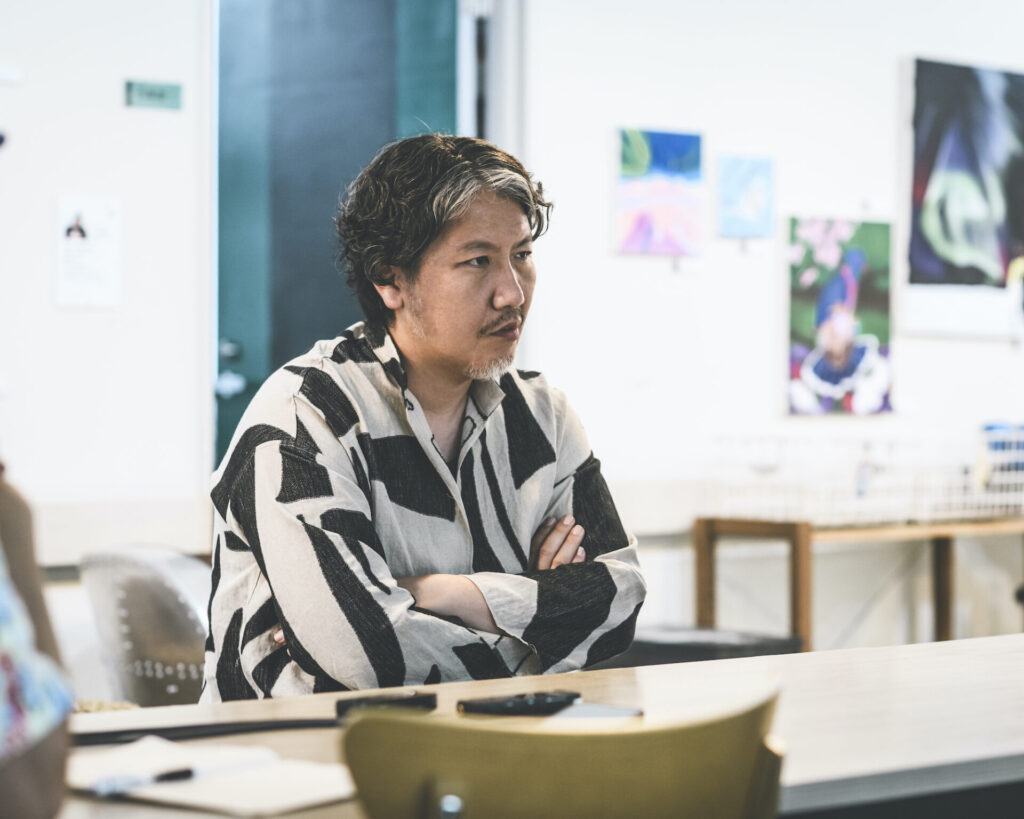
“What matters is how much motivated you are in your work, and whether you can sincerely say ‘thank you’ to those who serve others — I believe that’s the foundation of all work.” (Shigeta)
Masakazu Shigeta: I believe “diversity” is the word that has been taken out of context more than any other in recent years.
Hiroyuki Harada: The word “diversity” seemed to suddenly come out of nowhere. Perhaps there are more and more people who can’t understand each other without explicitly using that word. But we are all just human beings. There should never have been a problem with having different kinds of people out there. In fact, it’s just natural for various kinds of people to exist, so I find it somewhat sad that we now need to deliberately use that word just to explain and acknowledge this reality.
In most companies, employees are often evaluated in terms of being useful or useless. Some people even casually say things like, “That guy is useless,” without realizing how crushing such words can be — because they deny another person’s very existence.
If we apply those ways of thinking to PICFA’s members — some are unable to use their hands or have difficulty walking — there’s a real risk that they might be dismissed as a group of useless people. Yet we’ve managed to collaborate with brands like OSAJI and LAWSON, and have even welcomed officials from the Japanese government who came all the way for lectures and training.
I believe the same holds true in companies — groups only realize their value and potential when various people come together as a team. That’s why immediately judging someone by whether they are useful or not is such a waste. Given a little more time, someone’s talents may bloom, or they might excel at something other than their main work. If the presence of someone makes the atmosphere of the team more relaxed, that’s a strong point.
For example, I think you may remember a member who asked many questions during today’s closing session. Just having him there lightens the mood. That’s his role in the team — and it means he doesn’t need to be evaluated only on other tasks. His contribution is to keep spirits up. Actually, he’s been drawing the same picture for about three years now — without producing anything new (laughs). However, it doesn’t diminish his value to the team.
Since PICFA is an art-based workplace, people tend to assume that we always have to be creating new works. But in fact, the reasons other members can draw so freely are precisely thanks to the relaxed atmosphere he created. That’s why his presence is more than enough to show his value as a member of the team. In PICFA, there’s no idea that someone is useless just because they can’t complete a single task — and that’s exactly one of PICFA’s greatest strengths.
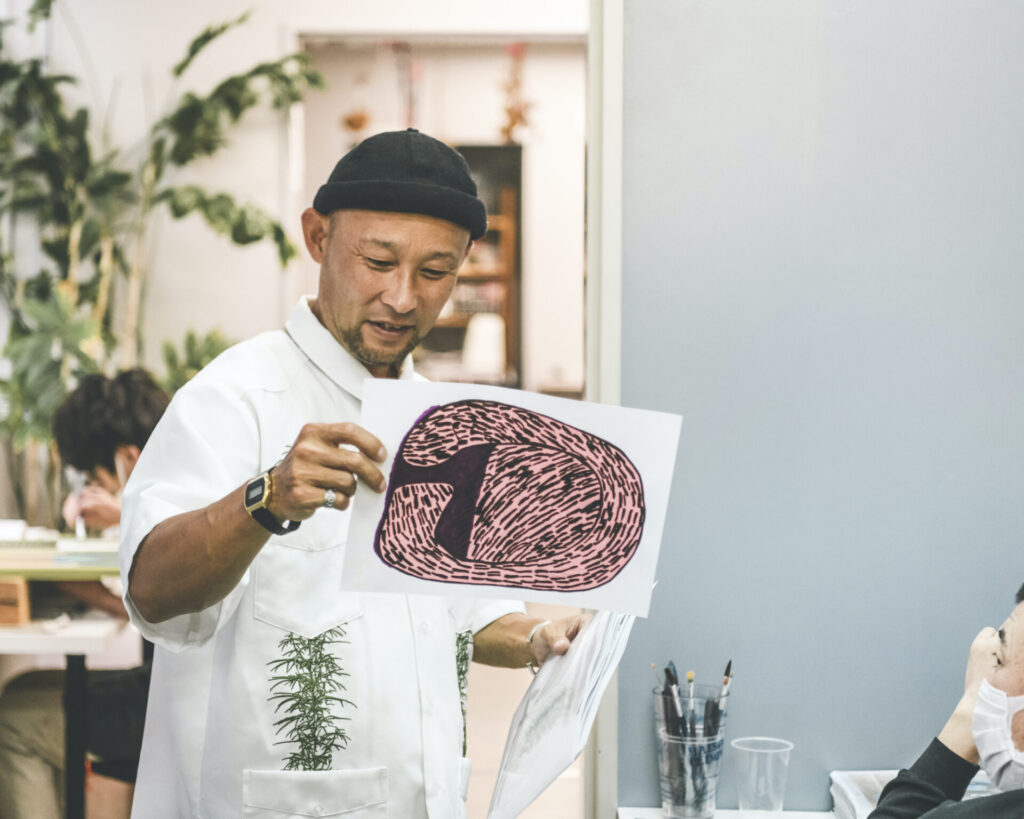
Harada: I’m often asked, “Everyone talks about welfare, but what exactly does it mean?” My answer is always that “Welfare is the right to happiness.” People tend to think the word welfare is only applied to elderly people and people with disabilities, but that’s not true. I’ve been saying that the goal of my activities is to create a society where parents — especially mothers — of people with disabilities can pass away with peace of mind. But I want to be happy too.
If we view welfare as the right to happiness, then naturally, people without disabilities have the right to it too. Once you adopt that mindset, you’ll never think of criticizing someone.
——Those who are engaged in supporting roles, such as carers and care managers, are also part of the welfare field. What do you think is necessary for them to feel genuine happiness?
Harada: I believe that’s an issue leaders — such as the heads of organizations or the presidents of companies — need to consider. If supporters become exhausted and burn out, the activities of welfare facilities come to an end. To avoid that, it’s important to care for those who provide care for others.
There are many kind-hearted people in the welfare field. Everyone works with the thought of doing something for others. But if that feeling grows too strong, they can lose perspective and fail to notice that they themselves are worn out. Families with children who have severe disabilities continue caring for them without anyone praising their efforts. If that situation continues for too long, tragedies can occur. That’s why it’s so important to have someone around you who can care for the carers — someone who can say, “You deserve to be happy, too.”
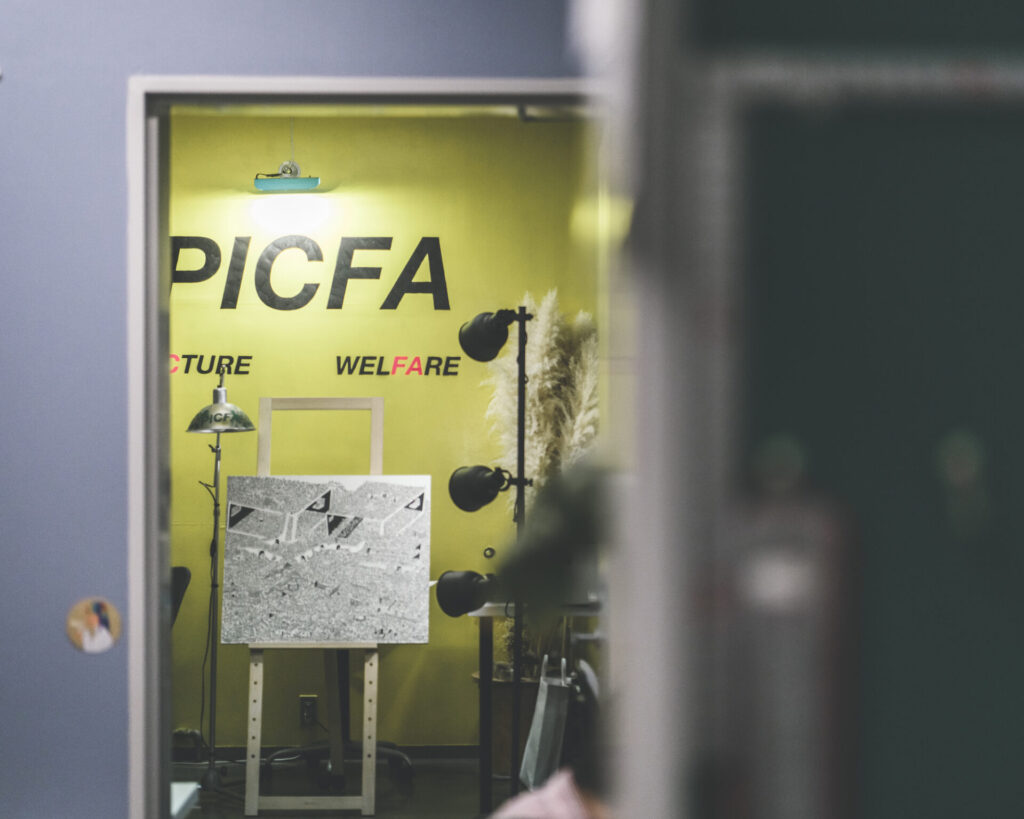
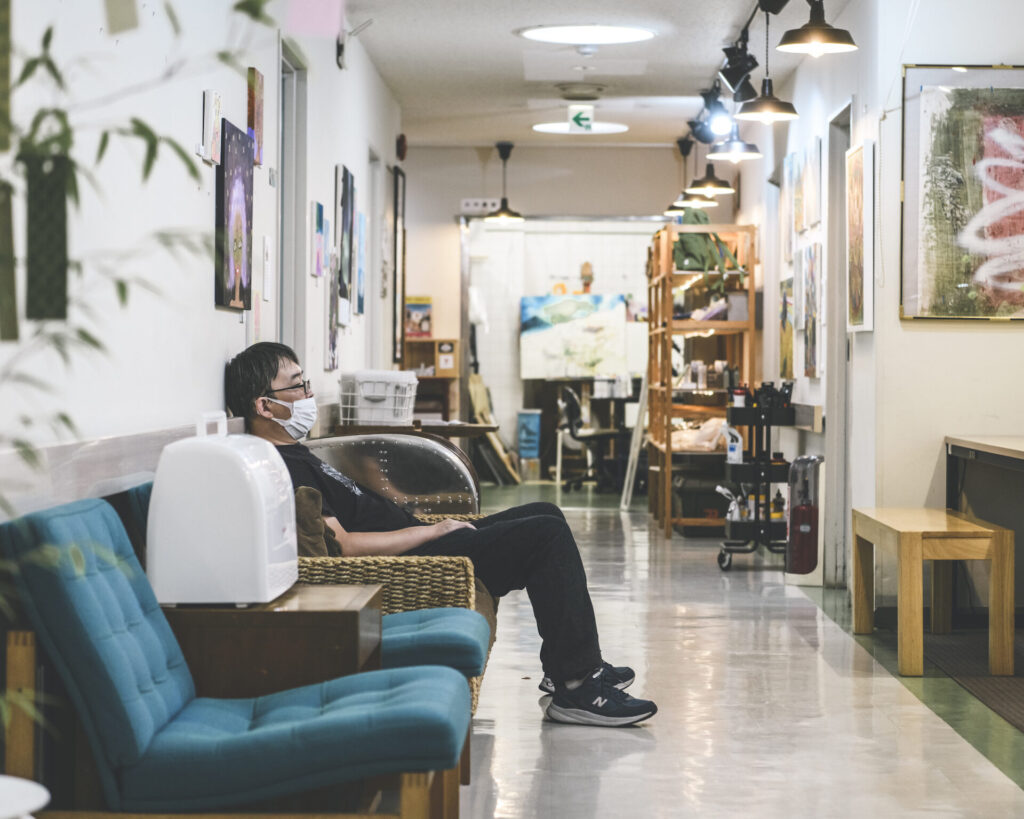
Shigeta: Whether it’s welfare or any other field, isn’t it important how motivated you are in your work? And whether you can sincerely say “thank you” to those who serve others. I believe that’s the foundation of all work. That’s why I want to say, “Let’s communicate more thoughtfully with each other.” I think that’s what thoughtfulness ultimately means.
These days, some people can’t even say thank you to their mothers for doing something for them. At restaurants, too, many people simply eat their meals, pay the bill, and just leave without a word — as if it’s only natural that food should be provided for them.
What makes me so proud of my son is that when he leaves the restaurant, he says to the staff, “Thank you for the meal. It was really delicious.” I never taught him to do that — he just naturally expresses his gratitude to others. For those who prepare the food, those few words can be a powerful source of encouragement and motivation.
The same goes for the cosmetics business. Whenever I ask store managers about the happiest moment in their careers, they all say without hesitation — “That’s the moment when customers say thank you”.
In our work, we may sometimes showcase our skills or dedicate ourselves to serving others. But in the end, when someone simply says thank you, all your efforts feel rewarded — and I believe that’s what being human is all about.
Harada: Some members rarely speak. It’s difficult even for us to understand what they’re thinking. But they do send us some signals, which we can learn to pick up by paying close attention. Whether you can do this largely depends on your sensitivity.
Developing your sensitivity is much more difficult than you think, but learning to notice the signals from those who struggle is surprisingly achievable — as long as you genuinely want to help others.
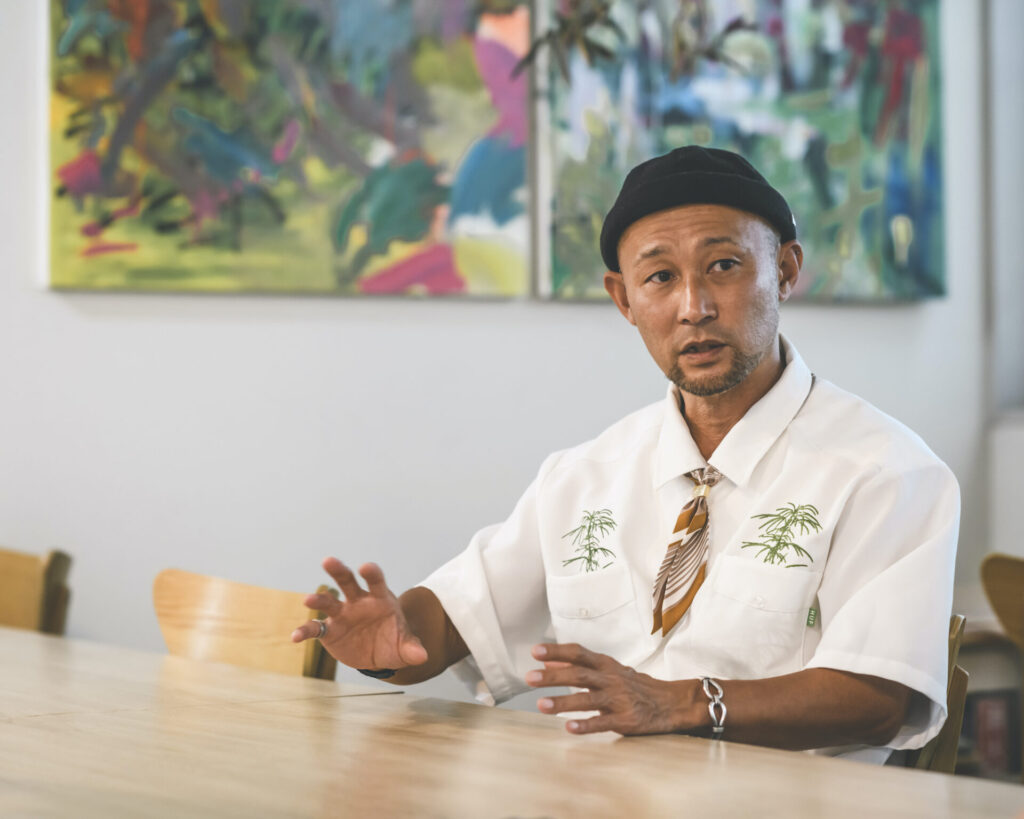
“I told the person who repeatedly self-harmed, ‘If you really want to do it, go all the way — but if it’s going to end up looking like a tattoo, why not just get a tattoo in the first place?'” (Harada)
Shigeta: Before this session, I heard you started growing plants in the facility to help members stop self-harming. What changes have you seen since then?
Harada: I once said to someone who repeatedly self-harmed, “If you really want to do it, go all the way — but if it’s going to end up looking like a tattoo, why not just get a tattoo in the first place?” People around me were understandably shocked and scolded me, saying, “Why on earth would you say something like that!?” When I added, “It might look cute with colorful lines,” even some of the staff got mad at me.
What I didn’t want was for the parents to be left in tears, saying, “Our daughter has hurt herself again.” I came to the conclusion that people turn to self-harm because they haven’t understood what loving and caring for something means. If you can truly love yourself, you would never harm your body. I asked myself how someone might be able to develop that feeling — including toward people around them — and that’s how I came up with the idea of growing plants.
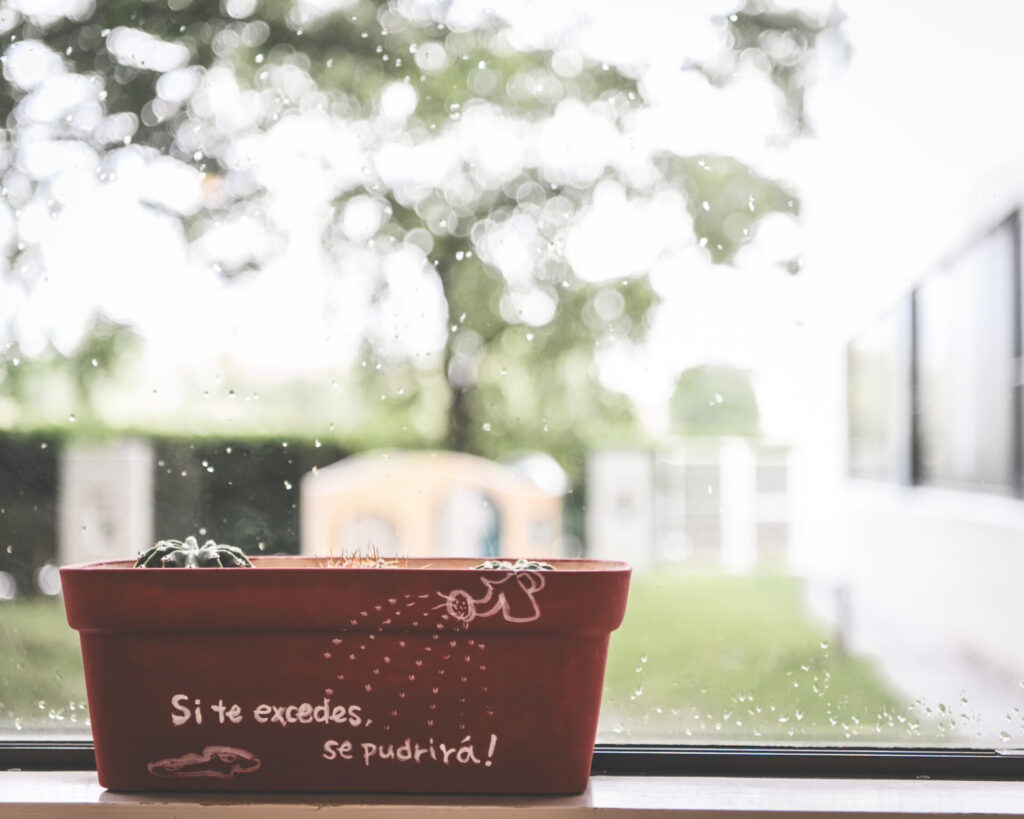
——Where do you get those plants?
Harada: First of all, we launched the “PICFA Jungle Project.” As long as we grow them with love, we want the kind of plants you might see displayed in hair salons, not weeds from the roadside. When I shared this plan with elderly people who often drop by PICFA, they even dug up plants from their own gardens to offer them here. Some even said, “We don’t mind if they wither.”
I’ve never seen a welfare facility with this many plants of such variety. Staff at facilities serving people with severe disabilities often tell me that plants end up getting torn up or pulled out. But to me, it’s fine for plants to play that role. Eating them won’t kill anyone, so I would rather have the members find out for themselves that they don’t taste good. Once they’ve learned that, they won’t do it again. If there is someone who is interested in eating plants, placing edible ones might be one approach.
But, as I said earlier, the preconceptions of how things should be always take over. What makes someone dislike plants and try to tear them up? Is it the shapes, the colors, or the smells? If you simply say “Stop it!” without even trying to understand, I think it’s irresponsible for someone in a supporting role.
——So, you think we need to find out the cause before figuring out how to handle it?
Harada: I’m the kind of person who never feels satisfied without trying various approaches. If someone is sensitive to certain sounds, I want to find out exactly which sounds bother them. I organize workshops designed to explore people’s specific sensitivities and often bring members there.
For example, we’ve found out that a person with autism was bothered by the high-pitched cry of a three-year-old girl. So the staff always oversee and quickly help the person step away from the area whenever we hear such sounds. As welfare professionals, we might be able to notice things that even family members haven’t picked up on.
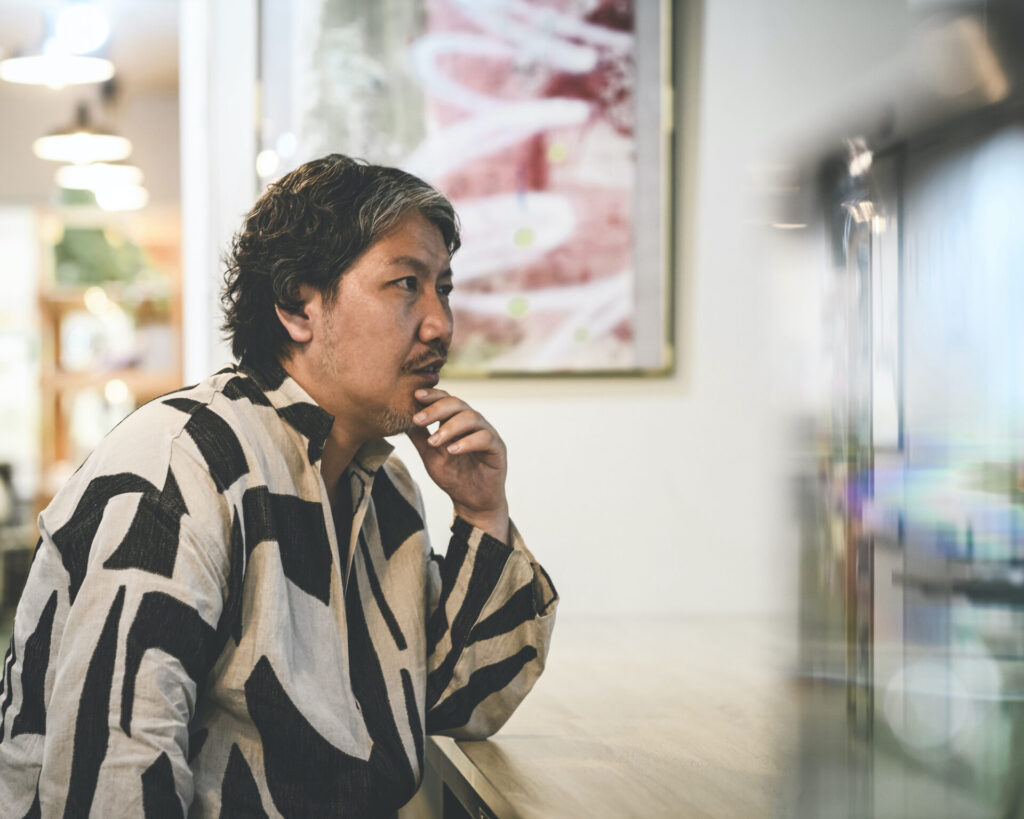
“I believe PICFA is the one to do that. PICFA is a trigger that can move society in a better direction. That’s why I want to bring along people I trust and share PICFA’s value with them.” (Shigeta)
Harada: Here’s an interesting episode where we turned a weakness into a strength. It was when we developed a hand cream together with OSAJI. During the discussion on how to blend the fragrance, we came up with the idea of asking a member with autism, who dislikes scents, to do the blending. On the surface, we were asking him to do something he didn’t like, so it could have been seen as a kind of bullying. But I thought it could be a really good idea as long as he himself didn’t say no.
So I asked him, “You don’t like scents, right?” and he immediately replied, “No, I don’t.” Later, I explained, “We’re receiving nearly a hundred different kinds of fragrance ingredients, and I’d like you to find one or two you actually like.” He got motivated and said, “Alright.”
A little later, a set of samples of extracted fragrance components arrived. He carefully smelled each one and eventually found a scent he liked. The perfumer at OSAJI refined it, and that became the fragrance for the hand cream. It’s the kind of idea we would never come up with, and being able to do something like that is just so exciting.
What I want is for more people to have a mindset of “We are allowed to try,” instead of “We mustn’t do that.” Ideally, people with and without disabilities can casually go out for drinks or join parties together — just as a normal part of life. Deep down, I think everyone really wants to break free from the preconceptions that hold us back.
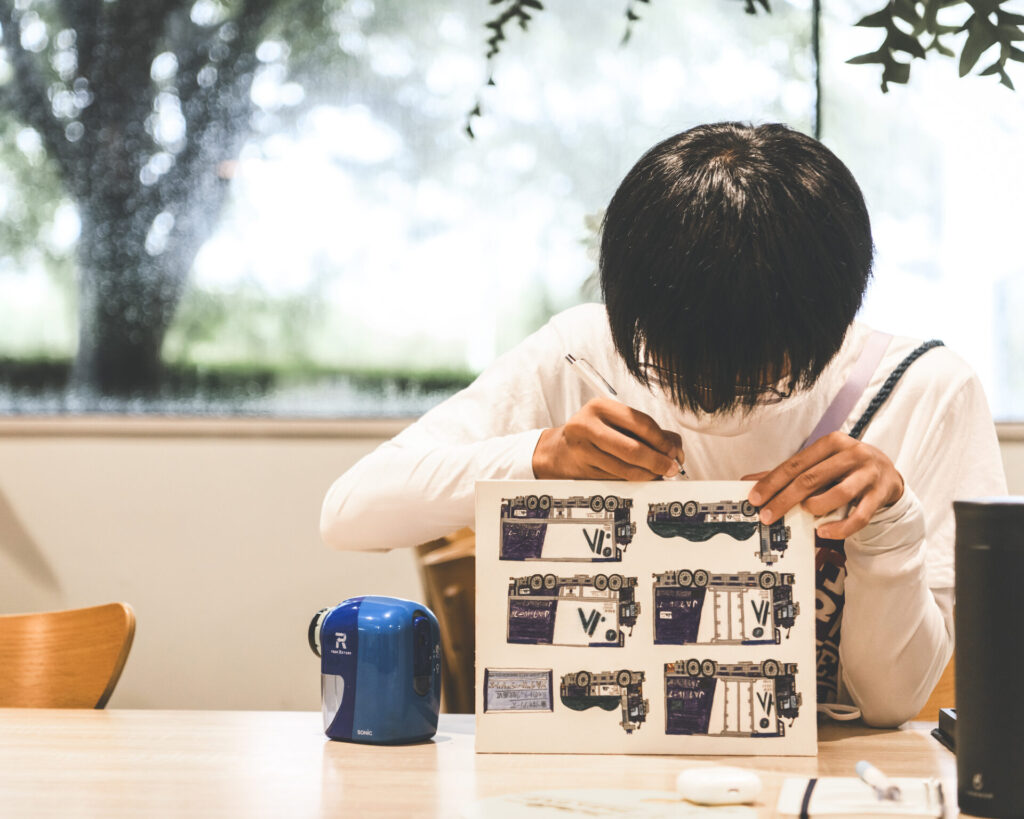
Shigeta: That’s absolutely true — and at the same time, many are waiting for someone to take the first step. I believe PICFA is the one to do that. PICFA is a trigger that can move society in a better direction. That’s why I want to bring along people I trust and share PICFA’s value with them.
——Mr. Harada, you once said you wanted PICFA to be a place where neighborhood elementary school children could casually drop by. Has that become a reality?
Harada: Yes, they often stop by. Toward the end of summer vacation, children told by their mothers to finish their homework show up with tears in their eyes — and drawing paper and watercolor paints in their hands. Our members teach them how to paint, and they end up creating wonderfully free drawings. Everyone goes home with improved skills, and some even win awards at school.
We also have children who are not attending school come to us for advice. It seems word has spread nationwide — people say, “You should visit PICFA.” Just two weeks ago, we even had a visitor from Kenya. I’m not sure how our recognition has spread so widely, but PICFA is gradually becoming a place where all sorts of people casually drop by.
——I assume there are many visitors who want to build a facility like PICFA.
Harada: Yes, I’m often asked, “How can we create a facility like PICFA?”
It’s not just about welfare — you can achieve almost anything if you approach it with real commitment. What’s most important is whether you can take that very first step.
You probably can’t just copy PICFA, but every facility has things that only it can do. The key is to start from there and let the facility and the local community develop their own unique character. What truly matters is putting the people right in front of you first. As long as you keep that mindset, you’ll never go wrong.
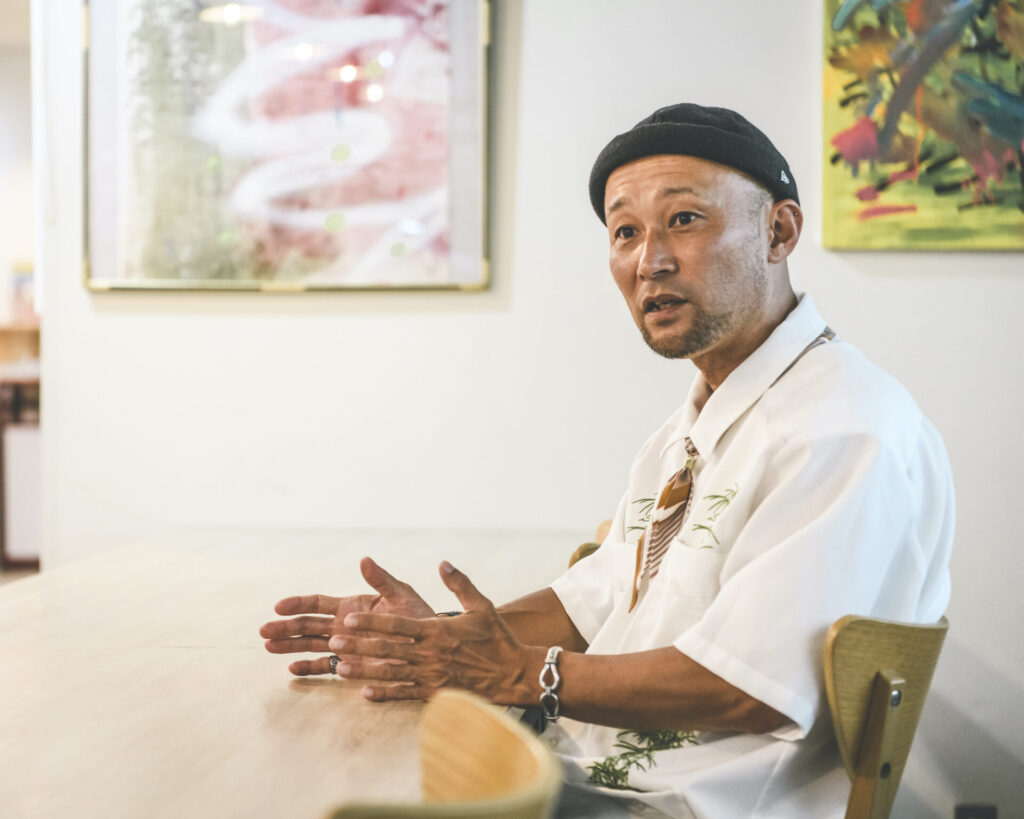
“When you’re thinking solely from a welfare perspective, doubts inevitably arise. At those times, receiving encouragement from people of different generations and industries is incredibly reassuring.” (Harada)
——Could you tell us about your future vision for PICFA?
Harada: I have a 100-year plan that I first drafted during my university days when I decided to dedicate myself to the field of welfare. The plan is to create a system where mothers can pass away with peace of mind, without worrying about their children with disabilities. This year marks the 23rd year since I started putting this plan into practice, and my goal for the 30th anniversary is to launch PICFA’s apparel brand. I want it to be a brand that conveys our vision and philosophy to society through clothing. We’re planning to reach a global audience through our e-commerce website.
We’ve already secured a .com domain. We purchased it from a U.S. company and registered it as a trademark. We are also in the process of applying for trademark registration in Europe, Africa, and Asia. I’m fortunate to have many supporters, including financial backers, who tell me, “What you’re doing is the right thing.” That encouragement has been a tremendous help. When you’re thinking solely from a welfare perspective, doubts inevitably arise. At those times, receiving encouragement from people of different generations and industries is incredibly reassuring.
I haven’t shared the full scope of my 100-year plan with anyone yet, including the plan beyond the 30th anniversary. Until around PICFA’s fifth year, I often spoke openly about my future plans. That was when some of my ideas were taken by other companies. As companies become able to enter the welfare business, some of them probably thought, “Harada’s idea can make money.”
As for other future plans beyond apparel that I can share for now, we’re planning to create a gallery on the upper floors of this hospital. With the gallery as our base, it would be easier to communicate with the world, and for people around the world to reach out to us. I believe this will allow us to receive global information more directly than ever before.
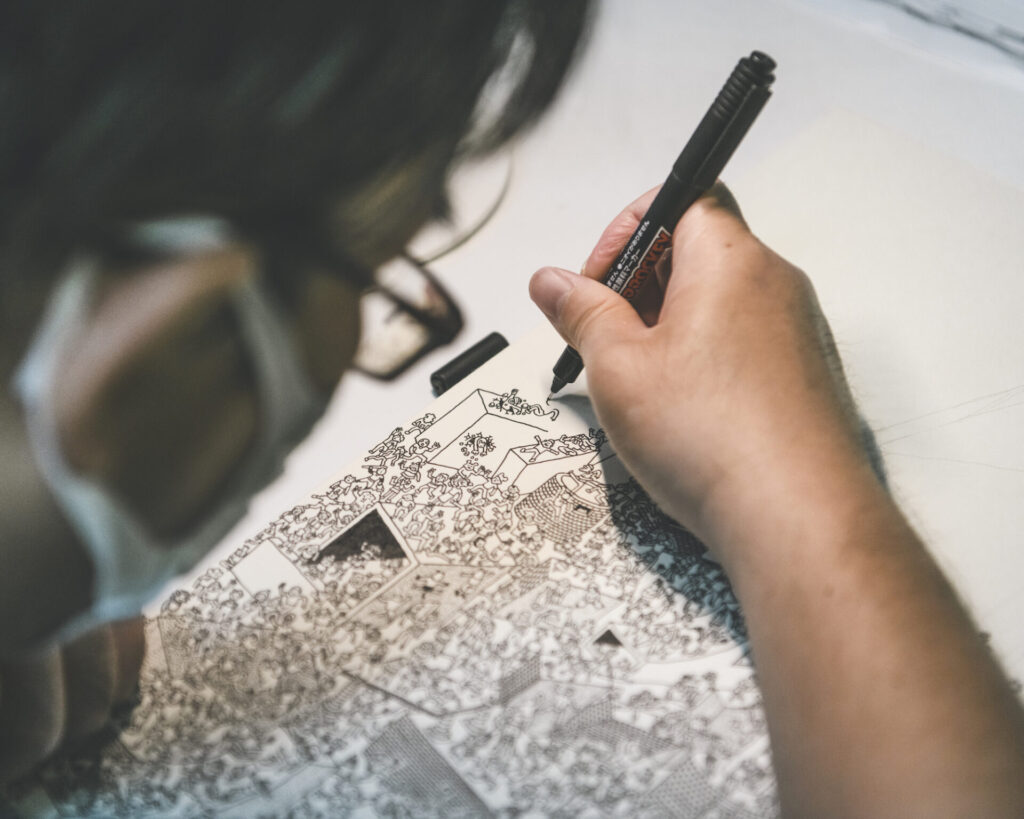
——So, you see it as more of a touchpoint for global art information?
Harada: It’s actually closer to a hub where welfare-related information from around the world comes together. As far as I know, there isn’t yet a platform where welfare information is exchanged on a truly global scale. But if we set out to create one with that goal from the very beginning, it would probably only attract very earnest, serious-minded people.
That’s why I want to use art as a medium— to draw in people from different industries, and through that, gather welfare knowledge. If we can make it happen, I believe it will open a new chapter in the history of welfare in Japan.
——Countries like Denmark and other Nordic nations are often seen as leading countries in welfare. Compared with them, would you say Japan is falling behind?
Harada: Before we even start talking about whether Japan is “behind” or not, I think it’s important to consider cultural differences. These differences also have a big impact on what’s possible— and what isn’t.
The other day, I spoke with a friend living in Denmark, and I learned that people there tend to see welfare from the perspective of the individual. A striking example is a TV show featuring LGBTQ couples with Down syndrome enjoying drinks together at a bar. You just wouldn’t see that in Japan, right?
They show the reality as it is, and then ask the audience, “So, what kind of support can you provide?” I really admire a society where that’s considered normal. In Japan, by contrast, people tend to focus on the struggles themselves, thinking, “Let’s all support them together and share the emotion.” This focus on emotion can sometimes overshadow the individual in front of you, which I think is a real shame.
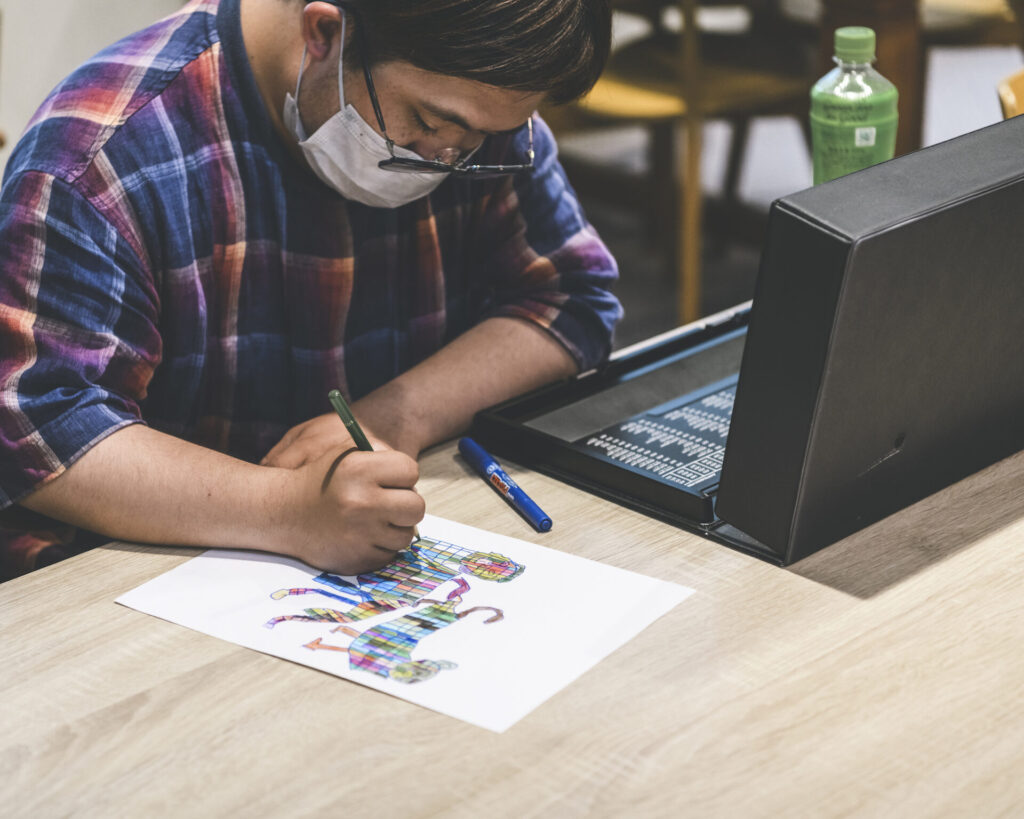
Shigeta: I used to think it was important for everyone in a company to move in exactly the same direction. But now, I feel it’s fine if the company is heading to Hokkaido while some members take a different path toward Tohoku. Without that kind of flexibility, people can feel constrained and might stop thinking creatively and coming up with ideas on their own.
Everyone has their own direction, and when these directions come together, we might end up in Miyagi or Yamagata— and that’s perfectly fine. I believe that’s how companies should be. I think I learned this mindset from PICFA.
At PICFA, all kinds of artworks are created every day, but no one teaches them how to draw here, right? Even if a member spends the entire day sleeping, you think that’s perfectly fine. In this environment, creative expression naturally emerges as people influence each other through their unique characteristics, and some eventually take action, realizing that just sleeping would be a waste.
Harada: To my surprise, that kind of resonance emerges on its own, even before we realize it.
Shigeta: I believe that’s what a natural organization looks like — and it also reflects the natural flow of people’s emotions. Since PICFA was founded, I’ve come here at least three times every year. The facility has been moving in a more natural direction, becoming a place where anyone can feel comfortable. So, I want as many people as possible to come to know PICFA, and I’d be glad if this conversation could serve as an introduction for readers.
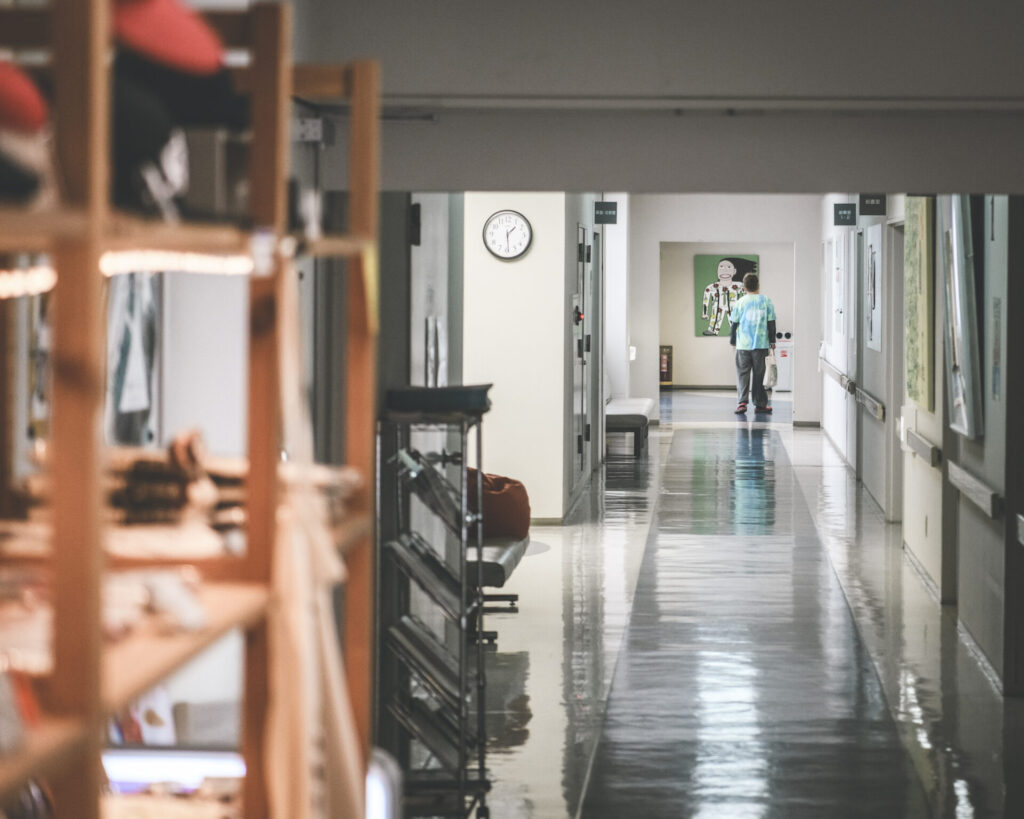
Profile
-
Hiroyuki Harada
Born in Fukuoka in 1974. With an older brother who had an intellectual disability, he grew up observing firsthand the struggles and challenges of children with disabilities and their families. Drawing from these experiences and motivated by a desire to “change the concept of welfare,” he chose to study at Nihon Fukushi University, where he began his formal education in welfare. After graduating in 2000, he participated in establishing JOY Club, a disability welfare service facility that centered its work on music and art, serving as deputy facility director. In 2002, he launched “Atelier Bravo” as the art section and handled event planning and external relations. In 2017, aiming to further strengthen the connection between welfare and society through creative activities, he founded PICFA within Kiyama Kage Hospital and has served as the facility director since then. From 2021, he has served as the advisor for Kyoto City’s employment promotion advisory service for people with disabilities. He also has a record of winning the national championship in soft tennis in both junior high school and high school.
-
Masakazu Shigeta
After working as an engineer in the music industry, Shigeta began his career as a cosmetics developer in 2001. From 2004, he worked on various cosmetics brands in the healthcare business of Nitto Denka Kogyo Co., Ltd., a metal surface treatment company founded by his great-grandfather. In 2017, he founded “OSAJI,” a skincare lifestyle brand, and became its brand director. In 2021, as a new store of “OSAJI,” he produced “kako,” a specialized shop for home fragrances and perfume in Kuramae, Tokyo. In the following year, he opened a combined shop of “OSAJI,” “kako,” and a restaurant, “enso,” in Kamakura, Kanagawa. In 2023, utilizing the technical skill of Nitto Denka Kogyo, he launched a pottery brand, “HEGE,” and in October of the same year, he became CEO of OSAJI Inc. He also has published books on beauty and held cooking classes and events focusing on food, which is the origin of beauty. He released a collaborative album with F.I.B JOURNAL called “Gensho hyphenated” in November 2024 and has been expanding the range of activities.
Publications
Taberu Biyou (Eating for Beauty) (SHUFU TO SEIKATSU SHA, 2024)
42-Sai ni Nattara Yameru Biyou, Hajimeru Biyou (Beauty cares to quit and start when you turn 42) (Takarajimasha, 2022)
Information
PICFA
PICFA is Japan’s first Type B employment support facility for people with disabilities located within Kiyama Kage Hospital in Kiyama Town, Saga, part of the Seimeikai Medical Corporation, which has operated for 350 years. With twenty members with intellectual disabilities, autism, and Down syndrome, the facility offers support for them to achieve independent living through creative activities such as art and design. The name PICFA is a coined word from PICture and welFAre, reflecting their commitment to pursuing both creative activities and welfare support. Their artworks and collaboration items are available on their website.
https://picfa-shop.jp
-
Photographs:Eisuke Komatsubara
-
Text:Masahiro Kamijo
NEWS LETTER
理想論 最新記事の
更新情報をお届けします
ご登録はこちら
ご登録はこちら
メールアドレス
ご登録ありがとうございます。
ご登録確認メールをお送りいたします。
